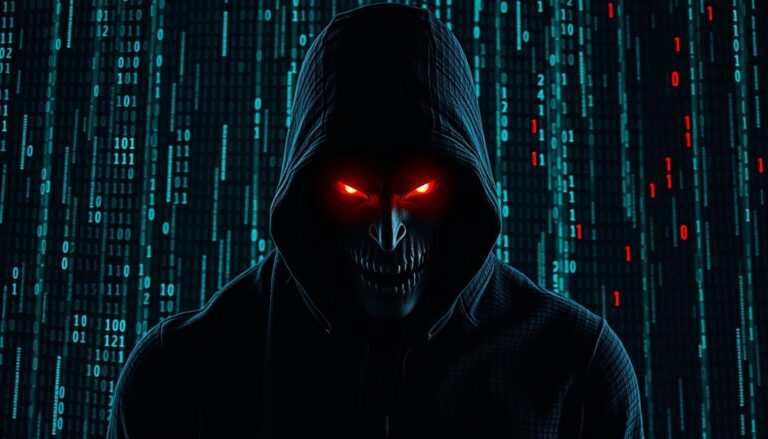You live in a world where cybersecurity is more than just keeping your data safe from hackers. It’s about knowing the global politics that shape the digital threats you see every day.
The world of cyber threats has changed a lot. It’s moved from simple cybercrime to complex operations. These now involve state-sponsored hackers and big political moves.
With global politics playing a bigger role in cybersecurity, you face a new reality. The difference between cybercrime and big political conflicts is getting smaller.
It’s important to understand this change to stay safe in the digital world today.
The Evolving Digital Threat Landscape
In today’s world, digital threats are changing. They affect both personal and national security. The lines between cybercrime and state-sponsored attacks are getting fuzzy.
The Blurring Lines Between Criminal and State-Sponsored Attacks
The digital threat scene is seeing more criminal and state activities together. Cyberattacks are now used for more than just money or fame. They’re used for political power too. This makes it hard to tell who’s behind an attack.
Recent attacks, like ransomware on key infrastructure and efforts to sway elections, show how urgent this issue is. These actions show the danger and complexity of today’s cyber threats.
Why Your Online Security is Now a National Security Concern
Your online safety is now linked to national security. Cyberattacks can harm not just your privacy but also the country’s systems. This is why keeping your online security safe is crucial for everyone.
Our connected world means a cyberattack on something big can hurt a lot. It can mess with power, money, and safety. So, keeping your online safe is not just for you. It’s for the country too.
- Cyberattacks can disrupt critical infrastructure, impacting national security and public safety.
- The sophistication of cyber threats requires a coordinated response from both individuals and national authorities.
- Understanding and mitigating cyber risks is essential for maintaining the stability of the digital economy.
Understanding the Spectrum: From Cybercrime to Cyberwar
Cyber threats have grown beyond simple hacking. They now involve global conflicts and actions by governments. It’s important to understand this shift from cybercrime to cyberwar.

Defining Modern Cybercrime and Internet Crime
Modern cybercrime includes many illegal online actions. These include data breaches, identity theft, and financial fraud. People or groups do this for money or fame. But, cybercrime is now tied to bigger global issues.
Protecting your digital security is more than just keeping your data safe. It’s about knowing how cybercrime affects everyone. As cybercrime gets smarter, it can harm individuals, businesses, and even countries.
The Emergence of State-Sponsored Hacking
State-sponsored hacking is a big threat. It’s backed by governments and aims at strategic goals. This includes spying, disrupting key systems, or changing political outcomes. It mixes cybercrime with cyberwar, making digital security key to national safety.
These hacking groups are very skilled. They can seriously affect global peace and safety.
When Does a Cyberattack Constitute an Act of War?
Deciding if a cyberattack is an act of war is hard. It depends on the attack’s impact, purpose, and who did it. If it harms a country’s key systems, economy, or safety, it might be seen as war. The problem is figuring out who did it and why.
The rules for calling a cyberattack an act of war are still changing. As the digital world evolves, so will our views on cyberwar. Keeping up with these changes is key for protecting online safety.
Major Geopolitical Cyber Incidents That Affected You
The digital age has brought a new era of cyber threats. These threats affect not just nations but also individuals like you. They impact your daily life, from your personal data security to the stability of national infrastructure.
Let’s look at some key geopolitical cyber incidents. The Russian interference in the 2016 U.S. elections is a notable example. It was a wake-up call for governments and individuals, showing how cyber activities can influence democracies.
Russian Interference in the 2016 U.S. Elections
The Russian hack in the 2016 U.S. presidential election is a clear example. This was not just a simple hack; it was a sophisticated operation aimed at influencing a major democratic event. It showed the vulnerability of electoral systems to cyber threats and raised questions about democratic security worldwide.
“The 2016 U.S. presidential election hacking incident by Russia was a significant escalation in state-sponsored cyber activities, demonstrating the complex interplay between cybercrime and geopolitics.”
The SolarWinds Hack and Its Impact on American Infrastructure
The SolarWinds hack had significant impacts on American infrastructure. This was a massive supply-chain attack that compromised numerous government and private sector organizations. The attackers, believed to be backed by a foreign government, infiltrated a major software company’s systems, gaining access to its customers’ networks.
The hack’s impact was deep, showing the vulnerability of critical infrastructure to cyber threats. It highlighted the need for better cybersecurity measures in both the public and private sectors.
Colonial Pipeline and How Cyberattacks Disrupt Your Daily Life
The Colonial Pipeline ransomware attack shows how cyber incidents can affect your daily life. This attack shut down a major fuel pipeline, causing fuel shortages and price hikes across the eastern United States. It showed how cyberattacks can have immediate and tangible impacts on the economy and daily life.
These incidents show the evolving nature of cyber threats and their geopolitical dimensions. Understanding these dynamics is key to mitigating the risks of internet crime and information warfare.
The Key Players in the Global Cyber Arena
Cyber threats are growing fast. It’s key to know who’s in the global cyber game. The world of cybercrime and cyberwar is complex. Many countries stand out for their advanced skills and plans.
Russia, China, North Korea, and the United States are the main players. Each has its own way of doing things and goals.
Russia’s Advanced Persistent Threat Groups
Russia is known for its smart cyber moves. These are thanks to Advanced Persistent Threat (APT) groups. These groups are very skilled and have caused big cyber problems.
Russia’s cyber skills are a big worry. APT groups from Russia have hit big targets. They’ve gone after government and private companies.
China’s Long-Term Digital Espionage Strategy
China is all about long-term cyber spying. They want to steal important info, mainly from the U.S.
China’s cyber plan is all about digital espionage. They go after many areas to get valuable info. This is a big threat to global security, as it steals data and hurts the economy.

North Korea’s Cyber Army and Financial Targets
North Korea has a strong cyber team. They mainly go after money, like banks and crypto exchanges.
North Korea’s cyber moves are bold, focusing on money. Their cyber army is good at getting past security. They do this to get money for their government.
America’s Cyber Command and Defensive Capabilities
The United States has a strong cyber command. They work on both defense and offense in cyber space. U.S. Cyber Command aims to keep American interests and systems safe from cyber threats.
The U.S. is working hard to improve its cyber defense. They see cybersecurity as key to national security. Through U.S. Cyber Command, they use smart tactics to fight cyber threats and keep their digital world safe.
How Nation-States Weaponize Digital Vulnerabilities
Nation-states are using digital technologies to gain power. They exploit digital weaknesses to achieve their goals. This is not just about disrupting services or stealing data. It’s about using every weakness to get ahead.
Zero-Day Exploits as National Assets
Zero-day exploits are unknown software vulnerabilities. They are very valuable to nation-states. These exploits can let them access sensitive systems without permission.
This makes them powerful in cyber espionage and cyberwarfare. For example, the NSA’s Equation Group had a stash of these exploits. Some were leaked, showing their importance in national security.
It’s important to keep your devices updated. This helps protect against known vulnerabilities.
The Role of Proxy Hacking Groups in Information Warfare
Nation-states use proxy hacking groups for cyber operations. These groups make it hard to know who is behind an attack. They can steal data or disrupt important systems.
For example, groups linked to Russian intelligence have been involved in big cyberattacks. This shows how complex state-sponsored cyber activities are.
Knowing about these groups helps us understand the cybersecurity world better. It shows the challenges governments and companies face.
Social Media Manipulation and Your Information Bubble
Nation-states also use social media to shape public opinion. They create content to influence what you think. For example, during the 2016 U.S. presidential election, foreign actors tried to sway opinions on social media.
Being aware of these tactics helps you think critically online. This makes you less likely to be influenced by false information.
The Economic Impact of Geopolitical Cyber Conflict
Cyberattacks are now a big threat to businesses and people. They are getting more common and complex. This leads to big financial losses.
Cyber conflicts affect the economy in many ways. This includes the cost of big data breaches and the misuse of personal data. Also, there’s a growing need for cyber insurance. Knowing these points helps us deal with the financial risks of cyberattacks.
True Cost of Major Data Breaches
Big data breaches can really hurt a business’s wallet. The costs include losing sensitive info and paying to protect customers. There are also legal fees and fines from regulators.
| Year | Data Breach Incident | Estimated Cost |
|---|---|---|
| 2017 | Equifax Breach | $1.38 billion |
| 2019 | Capital One Breach | $150 million |
| 2020 | SolarWinds Hack | $100 million+ |
The financial impact of a data breach can be long-lasting. It can hurt a company’s stock price and customer trust for years.
How Your Personal Data Becomes Collateral Damage
In geopolitical cyber conflicts, your personal data is valuable to attackers. They might use it for identity theft or sell it online.
Protecting your personal data is more important than ever. Be careful with what you share online. Use strong passwords and watch your accounts for odd activity.

Understanding Your Cyber Insurance Options
Cyber insurance is key for businesses and individuals to handle cyberattack risks. Policies can cover data breaches, extortion, and business downtime.
It’s important to know what your policy covers and its limits. Working with an insurance professional can help find the right policy for you.
Protecting Your Digital Assets in an Era of Cyber Conflict
Cyber threats are growing, making it key to protect your digital stuff. It’s not just for companies but for everyone. We need to stay ahead of cyberattacks with smart security steps.
Essential Digital Security Practices for Personal Devices
Keeping your devices safe is a must. Use strong, unique passwords for all accounts. Also, turn on two-factor authentication when you can.
Keep your operating system and apps up to date. This fixes holes in your security. Be careful with links and downloads from unknown places.
Use a good antivirus and a virtual private network (VPN) to hide your internet use. Back up your data often. This way, you can quickly get back to normal if you’re hacked.
Business Preparedness Strategies Against Advanced Threats
Companies need a risk-based approach to cybersecurity. Focus on what’s most important and change your defenses as needed. Use advanced threat detection systems and check for weak spots often.
Teach your team about cybersecurity. They should know how to spot phishing and use safe networks. This helps prevent attacks.
- Implement robust firewalls and intrusion detection systems.
- Conduct regular security assessments and penetration testing.
- Develop an incident response plan to handle potential breaches.
When and How to Report Suspicious Online Activity to U.S. Authorities
If you think you’ve been hacked or seen something odd online, report it. In the U.S., you can tell the Internet Crime Complaint Center (IC3). It’s a team-up between the FBI and the National White Collar Crime Center.
Give as much info as you can when you report. Include emails, IP addresses, and other details. This helps catch the bad guys and stop more attacks.
The Future Battlefield: Emerging Cyber Threats to Your Digital Life
New technologies are making our digital lives better but also more vulnerable to hackers. It’s important to know about the new threats to your online safety.
AI-Powered Attacks
Artificial Intelligence (AI) is a mixed bag in cybersecurity. It helps protect us but also gives hackers advanced tools. AI-powered attacks can scan lots of data, send fake emails, and even make fake videos to trick people and companies.
For example, AI malware can change to evade old security methods. But, experts are using AI to find and stop threats faster.

Quantum Computing’s Impact on Encryption
Quantum computing is a big worry for our online security. Quantum computers can solve problems way faster than regular computers. This could break many encryption methods we use today.
| Cryptographic Algorithm | Current Security Status | Potential Quantum Computing Threat |
|---|---|---|
| RSA | Currently Secure | Vulnerable to Quantum Attacks |
| ECC | Currently Secure | Vulnerable to Quantum Attacks |
| Symmetric Key Cryptography | Currently Secure | Less Vulnerable, but Key Sizes May Need to Increase |
We need to create and use quantum-resistant cryptography to keep our data safe from future quantum threats.
Your Smart Home as a Potential Vector for Attack
More devices in your home mean more chances for hackers to get in. Smart home devices, like speakers and cameras, can be hacked if not secured well.
To keep your smart home safe, do these:
- Always update your devices
- Use strong, different passwords for each device
- Keep your network separate to protect important devices
By following these tips, you can lower the risk of your smart home being hacked.
U.S. Policy and International Response to Cyber Threats
Cyber threats are growing fast. It’s key to know about U.S. policy and global responses to stay safe online. The U.S. is working hard to keep up with cybercrime and attacks from other countries.
Privacy Implications of American Cyber Policy
The U.S. is taking steps to protect against cyber threats. But, this raises big questions about privacy. The government wants to keep us safe, but it might also affect our privacy online.
For example, more surveillance and data collection by the government can be a problem. It helps fight cyber threats but also worries us about our personal data.
Challenges in Attribution and Enforcement
It’s hard to figure out who’s behind cyberattacks. The internet makes it tough to track down attackers. This makes it hard to hold them accountable.
Getting countries to work together on cyber laws is also tough. Laws vary worldwide, making it hard to catch cybercriminals. We need global cooperation to fight cyber threats.
Towards a Digital Geneva Convention
There’s a push for international rules in cyberspace, like the Geneva Conventions. A Digital Geneva Convention could set clear rules for countries online. This might help prevent cyber wars.
This shows how important global teamwork is in fighting cyber threats. By setting common standards, countries can better protect us all online.
Conclusion: Navigating Your Digital Life in the Age of Cyber Conflict
Geopolitical events are changing how we see cybersecurity. You’re more connected than ever, but this means you’re also more at risk. Cyberattacks and online threats are becoming a big deal, affecting both personal and national security.
It’s key to know about major cyber incidents and who’s behind them. This knowledge helps you protect your personal data and devices. By understanding how nation-states use digital attacks, you can stay safe online.
The digital world is getting more complex. To stay safe, you need to be careful and keep up with new threats. By following good digital security practices, you can protect your online world in the cyber conflict era.
FAQ
What is the difference between cybercrime and cyberwar?
Cybercrime is about making money or causing trouble online. Cyberwar is when countries use hacking for big political reasons. It can even be seen as a form of war.
How do state-sponsored hackers impact cybersecurity?
State hackers are a big problem for online safety. They do smart attacks, spy, and sabotage. They often target important places like government sites and big companies.
Why is individual online security now a matter of national security?
Our online safety is linked to the country’s safety. If hackers get into our personal stuff, they can get into bigger systems too. This is why keeping our online stuff safe is important for everyone.
What are zero-day exploits, and how are they used in cyberwarfare?
Zero-day exploits are new ways hackers find to get into systems. In cyberwar, countries use these to sneak into secret places. It’s like having a special key to get into places others can’t.
What is the economic impact of major data breaches?
Big data breaches cost a lot. There’s money for fixing the problem, telling people, and helping them with their credit. Plus, there’s money lost because of stolen info and bad reputation.
How does cyber insurance help mitigate economic risks?
Cyber insurance helps by covering losses from cyberattacks. It lets businesses and people get back on their feet faster.





[…] find a good balance, think about where you place your cameras. Make sure you respect your privacy and others’. By staying up-to-date with new surveillance […]